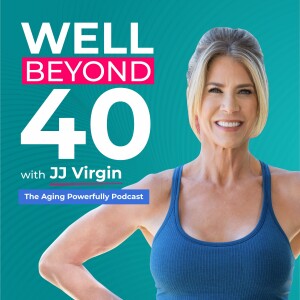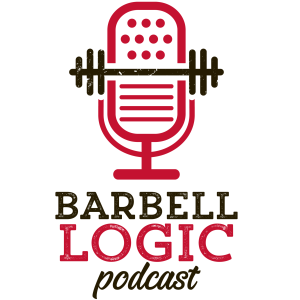The stress-recovery-adaptation cycle underpins the process of training. You stress yourself (the workout), spend time not stressing yourself (recovery), and hopefully move toward your goal (adaptation).
The stress you apply needs to be specific, based on the specific adaptation to imposed demand (SAID) principle. If you want to improve your run time, you should run, not follow a powerlifting routine.
For many people, following the workout program is relatively easy. What often becomes harder is changing habits outside the gym, which can be developed over years and decades.
How much protein are you eating? Are you willing to eat consistently in a caloric surplus? What does your sleep look like each night?
These and other factors limit your adaptation, and so addressing them can help you move toward your goal. Failing to deal with them means you may fail to meet your goal.
Recovery as the Limiting Factor: Maximizing RecoveryAs you age, stressful events occur in your life (even if they're positive, like having a baby), and your priorities change, your recovery (and thus your adaptation) capacity changes.
To move toward your goal and stay healthy, maximizing recovery may make sense.
This area, though, often comes with harder-to-crack psychological underpinnings. On some level, you like to and are used to your habits (even if you are unhappy with where they have led you).
Ensuring you get enough protein and consistently eat high quality foods matters. Prioritize sleep (which comes with a host of habits you can build around sleep). Limit alcohol. Don't pursue the unimportant and non-urgent in your life.
A new approach to training, especially in more stressful times of life, may need to occur. Building in some autoregulation and not beating yourself up if you don't do what is programmed (the planned stress) matters.
For example, Niki and her sister were on vacation. They went to the gym and Niki's sister did her last warm up and it was way heavier than expected. Niki decided to decrease the weight. The win was completing the workout, not beating themselves up about the weight on the bar, and not grinding out reps unnecessarily.
Recovery as the limiting factor is an important topic that needs more serious consideration.
No contract with us, just commitment to yourself: Start experiencing strength now: https://store.barbell-logic.com/match/
- Matt on Instagram
- Niki on Instagram
- Andrew on Instagram
- Barbell Logic on Instagram
- Podcast Webpage
- Barbell Logic on Facebook
- Or email podcast@barbell-logic.com
More Episodes
Uncomfortable Truths - Beast Over Burden - #565
 2024-07-02
2024-07-02
Accessory Lifts: What's the Point? - Beast Over Burden - #563
 2024-06-25
2024-06-25
Questions for Niki - Beast Over Burden - #561
 2024-06-18
2024-06-18
Gauging Nutrition Progress - Beast Over Burden - #559
 2024-06-11
2024-06-11
Conquer Your Limiting Beliefs - Beast Over Burden - #557
 2024-06-04
2024-06-04
What Building Wealth and Muscle Have in Common - Beast Over Burden - #555
 2024-05-28
2024-05-28
How Can You Invest in Peace of Mind? A Home Gym - Beast Over Burden - #553
 2024-05-21
2024-05-21
How to Lift Forever - Beast Over Burden - #551
 2024-05-14
2024-05-14
Why & How Lifters Should Do Cardio - Beast Over Burden - #549
 2024-05-07
2024-05-07
Eat With Us! Our Go-To Healthy Recipes - Beast Over Burden - #545
 2024-04-23
2024-04-23
Swing for the Fences! - Coaching Success - #544
 2024-04-19
2024-04-19
Are More Sets Better? - Evidence Review - Beast Over Burden - #543
 2024-04-16
2024-04-16
The Gospel of Hard - Beast Over Burden - #541
 2024-04-09
2024-04-09
How Can I Look Like Jake Gyllenhaal? - Beast Over Burden - #539
 2024-04-02
2024-04-02
The Evolution of Training Expectations - Beast Over Burden - #537
 2024-03-26
2024-03-26
Tips for Training While Traveling - Beast Over Burden - #535
 2024-03-19
2024-03-19
Menopause...Really We Need to Talk About It - Beast Over Burden - #533
 2024-03-12
2024-03-12
Better Your Bench - Beast Over Burden - #531
 2024-03-05
2024-03-05
Who's Your Daddy? Programming Difficulties for New Dads - Beast Over Burden - #529
 2024-02-27
2024-02-27
Create your
podcast in
minutes
- Full-featured podcast site
- Unlimited storage and bandwidth
- Comprehensive podcast stats
- Distribute to Apple Podcasts, Spotify, and more
- Make money with your podcast
It is Free
You may also like

Therapy in a Nutshell


Sleep Meditation Music - Relaxing Music for Sleep, Meditation & Relaxation


Good Nurse Bad Nurse


Well Beyond 40


Perform with Dr. Andy Galpin


- Privacy Policy
- Cookie Policy
- Terms of Use
- Consent Preferences
- Copyright © 2015-2024 Podbean.com



 iOS
iOS Android
Android